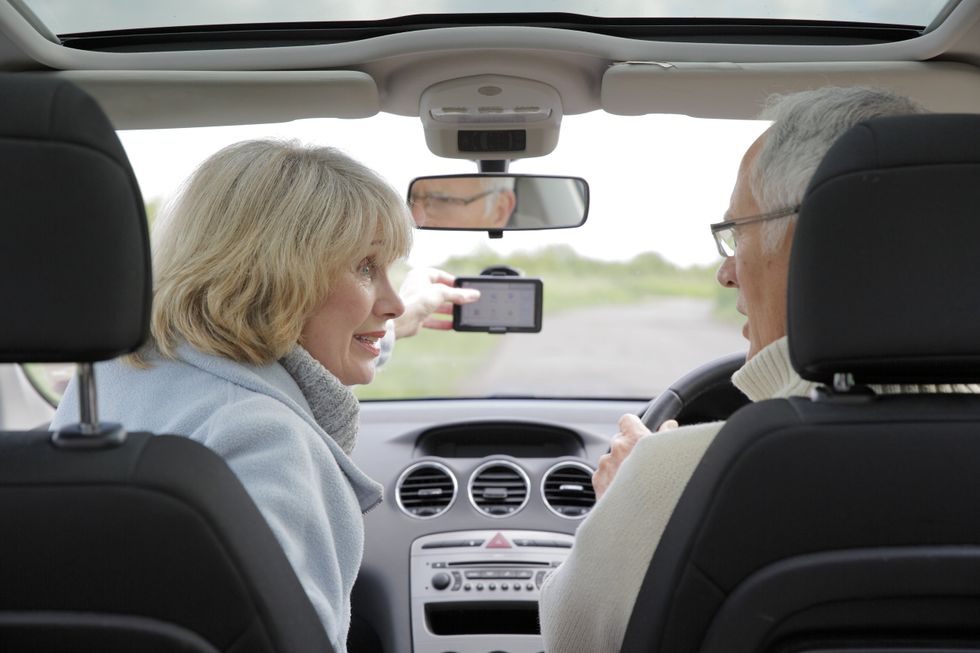WATCH: The GB News panel debates putting restrictions on elderly drivers
GB NEWS
Experts said using a GPS system could keep elderly drivers 'on the roads safely for longer'
Don't Miss
Most Read
Trending on GB News
Elderly drivers are staying on the road for longer periods of time thanks to GPS systems in smartphone apps and sat nav devices, according to new data.
New research from the University of East Anglia found that people aged over 65 with a poorer sense of direction rely more heavily on help from GPS systems.
A study involved 895 drivers over the age of 65, with an average age of 71, and saw participants self-reporting their typical driving habits.
This could include how often and far they drive, their subjective sense of direction and how they use GPS navigation devices to help them when on the road.
Do you have a story you'd like to share? Get in touch by emailingmotoring@gbnews.uk

Research found that elderly motorists are more likely to drive if they have a sat nav
GETTY
They were then asked to complete online cognitive tests, which assess their memory and spatial abilities, at which point researchers analysed the relationship between how people use GPS systems and their driving mobility.
Senior author Professor Michael Hornberger, from UEA's Norwich Medical School, noted that driving is the preferred method for elderly motorists as they can maintain their independence.
This can be especially true for those who have moved out of cities to more rural areas, as they need to drive to stay active and access amenities.
He added: "But age-related cognitive decline means that people might experience worsening spatial abilities, leading them to drive less and less.
"Because we have an ageing population, it’s really important to understand the factors that keep older people on the road, driving safely for longer."
Professor Hornberger confirmed that older people with a poorer sense of direction rely on sat navs more than other motorists.
Despite this, those who use GPS systems more frequently drive more often. He said that this suggests that the tools help mitigate against "spatial orientation difficulties and help maintain driving mobility".
The senior author added: "This means that if we support older drivers with using GPS navigation, it could really help maintain their driving independence - keeping them on the roads safely for longer."
The report suggested that the use of GPS technology devices "should be recommended as a tool to prevent wayfinding deficiencies being an obstacle for mobility and independence".
It added: "The implementation of GPS devices for individuals with wayfinding difficulties may also improve road safety within older adults - who are at greatest risk for fatal road traffic collisions.
"By improving driver safety and driving mobility, the implementation of GPS technology may also potentially reduce driver cessation rates in older age."
Lead author Dr Sol Morrissey, from UEA's School of Health Sciences, explained that the researchers wanted to understand how GPS systems can help older people on the roads.
LATEST DEVELOPMENTS:
- Police forced to spend £2.2million on repairs as 'vandals' target emergency vehicles - 'Likely much worse'
- UK could see larger vehicles imported that pose 'genuine risk' to safety amid Trump trade deal issues
- Labour forced to roll out emergency areas on 'deadly' smart motorways despite driver concerns
He added: "We know that using a sat nav system can alleviate the cognitive demands of navigation when driving, particularly when visiting less familiar destinations.
"And this technology has become increasingly popular among older drivers."







